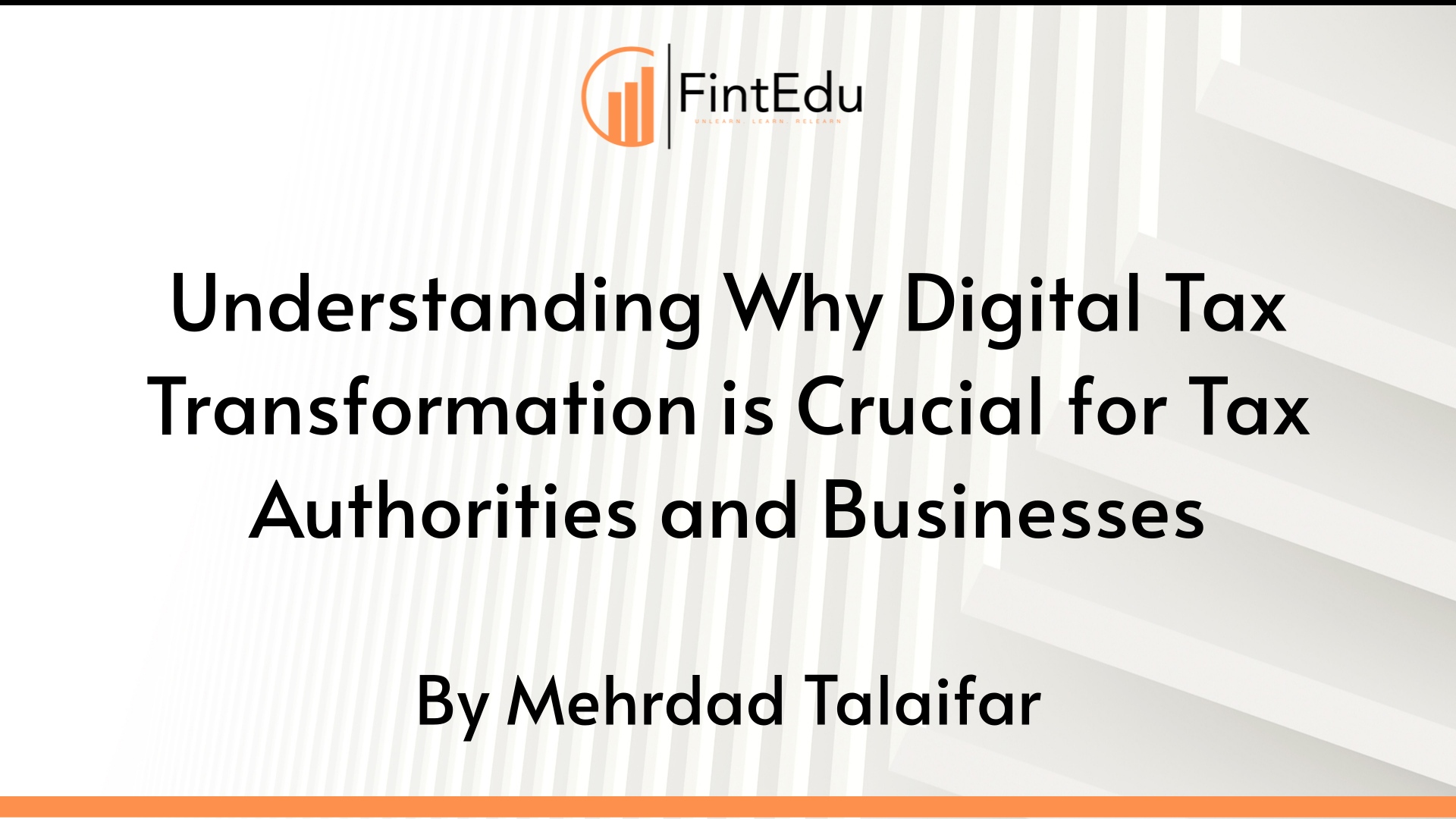LISTEN TO THIS ARTICLE
Digital Transformation, particularly with respect to tax compliance, is a journey upon which businesses and tax authorities must embark on in order to remain competitive and maximize compliance in the emerging digital economy. Tax authorities are at the forefront of digital transformation and are rapidly transforming their paper-based tax administration processes and systems to a data driven and real-time Digital Tax Administration.
Tax authorities view real time digital tax compliance and audits as the only viable long-term solution which will minimize tax leakages while simultaneously maximizing tax collections and taxpayer compliance. E-Invoicing mandates are preferred by tax authorities as the most promising viable first step towards achieving their objectives of:
a) efficiently collecting transaction-based taxes (e.g., VAT, GST, Sales and Use Tax, Excise Tax, Fuels Tax) at the moment of transaction and payment processing,
b) minimizing tax leakages,
c) preventing fraud,
d) enabling real time tax compliance, and
e) performing real time audits.
COVID-19 has accelerated the tax authorities’ transition to digital tax administration by four to five years. Consequently, businesses have been forced to accelerate their digital tax transformation initiatives to remain or become compliant with newly introduced digital tax compliance requirements.
Operationally, mainstream businesses face major challenges to adapt to the tax authorities’ hard and swift shift to cloud based real-time digital tax compliance, reporting and audit technologies. The introduction of Mandatory E-Invoicing by many tax authorities for all B2B, B2C and B2G transactions has accelerated the need for businesses to transform and merge their existing discrete and sequential processes for raising invoices, making payments, managing tax compliance, and supporting tax audits into a single real-time process.
Given this convergence, it is imperative for business organizations to develop and execute a Digital Tax Transformation Strategy which views tax compliance as a mission critical process and requires all relevant systems and processes to efficiently and effectively adapt to the new digital realities of:
a) rapid transition to digital transaction and payment processing,
b) significant increases in the global number of digital B2B, B2C and B2G transactions, and
c) increased global usage of mandatory E-Invoicing by tax authorities to enforce real-time digital tax compliance and audits.
Mandatory electronic submission of all sales invoices to tax authorities for real-time audit and approval significantly impacts the timing and process for invoicing and cash collection, especially when tax authorities impose the popular “Clearance Model” variant of E-Invoicing. To remain and improve compliance with the new digital tax requirements, businesses must embrace solutions and services which seamlessly, easily and economically integrate with their current financial systems, processes and technology platforms as well as with the tax authorities’ new digital platforms.
This new operational reality requires a digital tax transformation strategy and an execution plan which is well thought out, pragmatic and ensures both existing and future digital tax compliance requirements will be supported. Therefore, the transformation strategy and execution plan must include a requirement driven and focused selection process for tax technology solutions and platforms which meet the following essential requirements:
a) cloud-based open architecture technology platforms,
b) seamless integration with all types of systems and applications,
c) real-time transaction processing (E-Invoicing),
d) real-time payment processing, and
e) real-time tax and regulatory compliance reporting and audit.
The functionality and features of digital technology solutions on their own, however, will not deliver the desired key objectives, outcomes and benefits within a realistic timeline and budget. It is equally imperative to develop a pragmatic and agile implementation approach built on a series of small projects delivering quick wins, incremental transformations, and continuous compliance while minimizing intrusions and disruptions to ongoing business operations.
Disclaimer: Content posted is for informational and knowledge sharing purposes only, and is not intended to be a substitute for professional advice related to tax, finance or accounting. The view/interpretation of the publisher is based on the available Law, guidelines and information. Each reader should take due professional care before you act after reading the contents of that article/post. No warranty whatsoever is made that any of the articles are accurate and is not intended to provide, and should not be relied on for tax or accounting advice.
Contributor
Related Posts

The Fundamental Reform On January 1, 2026, the UAE implemented a comprehensive reform to ...
Read More
Insurance plays a vital role in financial stability across the region by protecting individuals busi...
Read More
The real estate sector plays a central role in the UAE economy, and VAT continues to be a critical c...
Read More